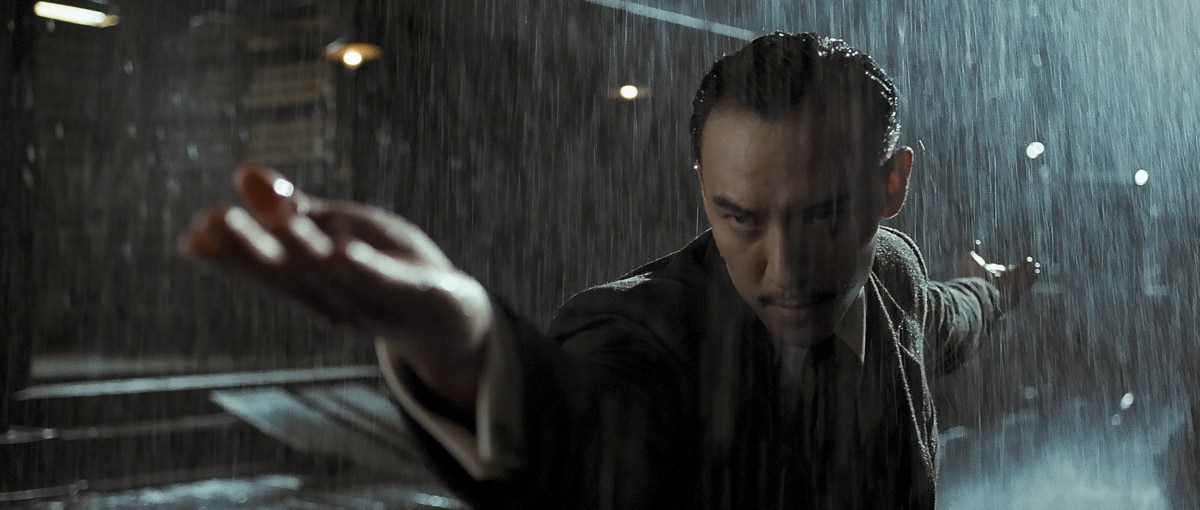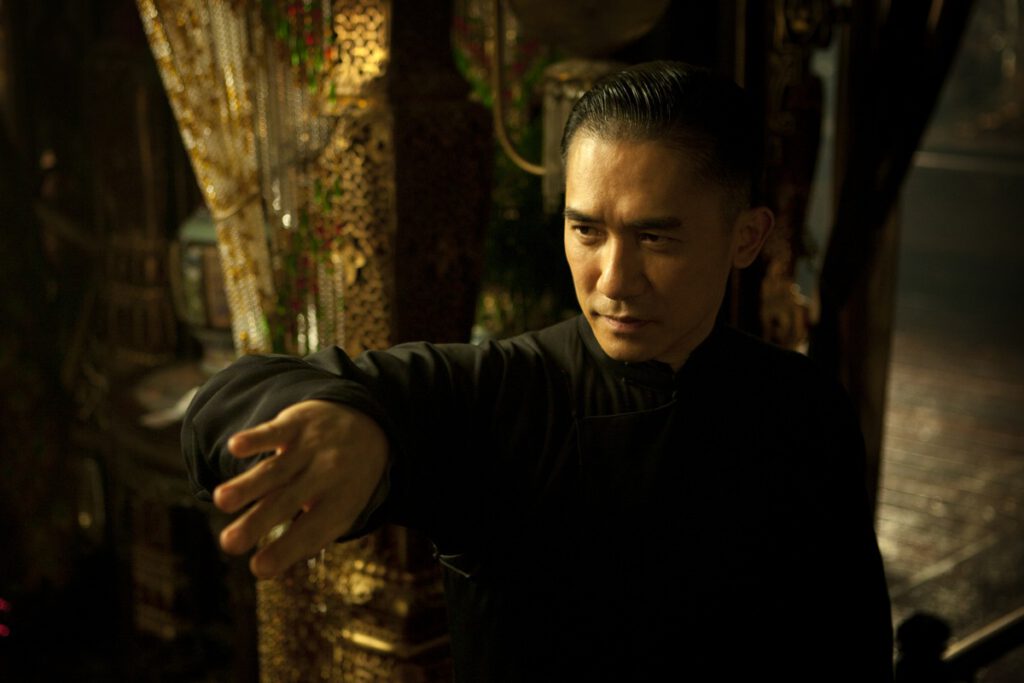In his 30-year career, Hong Kong superstar Tony Leung has worked with many top directors, including John Woo, Andrew Lau, Zhang Yimou and Ang Lee. Yet he is best known for his films with Wong Kar-Wai. “The Grandmaster,” which mixes martial arts history with the director’s penchant for unfulfilled romance, is their seventh collaboration.
And the most rewarding, according to Leung. “I think this is the most enjoyable work I’ve had with Kar Wai,” Leung said during an interview in Chicago. “I had a real character to work on.”
The character is Ip Man, a kung fu grandmaster best known as Bruce Lee’s martial arts instructor. To prepare for the role, Leung spent four years training in kung fu. “The Grandmaster” covers two chapters in Ip Man’s life: the late 1930s when he is a wealthy advocate of the Wing Chun form of the martial art, and the early 1950s when he is a poor refugee from communist China struggling to establish a kung fu school in Hong Kong.
Wong got the idea for a film focusing on kung fu in 1996 while he and Leung were in Argentina filming “Happy Together.” The director saw a magazine with Bruce Lee on the cover and marveled that Lee remained a worldwide icon three decades after his death. Wong did not share this inspiration with Leung for several years, and the focus of the kung fu film was still in flux.
“He once mentioned to me that he wanted me to do Bruce Lee,” Leung said. “Then nothing ever happened. Suddenly, another day he said, ‘I want you to be Bruce Lee’s master.’ I thought, OK.”
While it lasted, Leung was thrilled with the prospect of playing his boyhood idol. “I’m a huge fan of Bruce Lee,” he said. “Because of him, I wanted to learn kung fu when I was a kid.”
But Leung would not learn kung fu until he was 47 and preparing to play Ip Man. When he was a boy, his parents refused to let him learn martial arts, saying that only gangsters and police practiced kung fu. Leung realizes today that when he was a child, he had a childish conception of kung fu.
“At that age I still think kung fu is just a fighting technique,” he says. “I really have a better understanding of kung fu at my age of 47 when I start doing this movie and I have a chance to study what is kung fu. … And, wow, it was amazing.”

Even before the four years Leung spent learning and practicing kung fu, he spent a year exercising and jogging to get in shape for his martial arts training. Despite the preparations, Leung’s 47-year-old body initially protested the intense regimen. “In the first four months it was like, wow, I just want to give up!” Eventually, his body toughened. “After you reach a certain standard, you will feel better.”
The training was arduous—Leung broke his arm twice—but he believed it essential for playing Ip Man. “I thought this is something I need for this character. Because to portray the look of a grandmaster is not difficult, but to have the state of mind of a grandmaster, that needs a lot of knowledge and vision in kung fu.”
It also turned out that Leung still got to play Bruce Lee, in a way. He and Wong decided that since little is known about Ip Man’s life before he immigrated to Hong Kong in 1950, poetic license allowed them to imagine that the young Ip Man was similar to a young Bruce Lee. “Confident, talented, maybe a bit playful,” Leung said.
Wong also wanted Leung to learn about the master through the student. At the outset, he instructed Leung to research Bruce Lee. The actor revisited Lee’s films and studied Lee’s writings in martial arts and philosophy. “It really opened my eye to kung fu,” Leung said. “I learned a lot from what Ip Man taught Bruce Lee. He uses a lot of inspiration from the grandmaster. Their minds are somehow connected.”

Leung said he would not have undergone such rigorous training and preparation for any other director, but he doubts any other director would have asked. “Others don’t do movies that way,” Leung said. “He is the only one who dares to make a movie like that.” Wong is known as a painstaking director. He spent six years developing “The Grandmaster,” three years filming it and a further year editing it.
Wong also is famous for working without a script. “I know he has the screenplay, I know he has the script, but he never wants to show us,” Leung said. “He wants something organic, and I think he wants us to explore ourselves. … Our journey with Kar Wai is very adventurous. You never know where you are going.”
Existing photos of Ip Man, who died in 1972, reveal an impish figure, small and apparently frail, bald and usually smiling. The smile struck Leung, because Ip Man grew up privileged but arrived in Hong Kong impoverished and separated from his family. “How can a man live like that and still have that kind of look in the face?” Leung wondered.
Leung saw optimism, resilience and dignity in the smile and he sought to bring those qualities to the screen. “I think what makes Ip Man great is not his physical ability,” the actor said. “It is his wisdom and knowledge in kung fu. That is why I studied so long in martial arts. There is a spiritual side to kung fu. It will transform you. It will bring you wisdom. At the end, I think the code of kung fu is to achieve peace with nature. … This is what I wanted to bring to Ip Man.”
“The Grandmaster” opens nationwide August 30.











